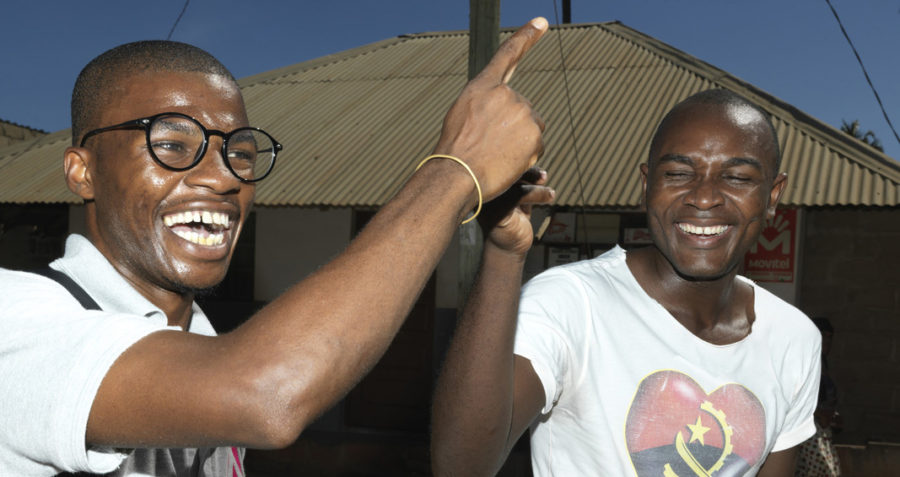Tauria’s story: from shame to strength
 © Frontline AIDS/Peter Caton 2019
© Frontline AIDS/Peter Caton 2019
From childhood, Tauria Tauach Rijal from Mozambique faced hostility and social isolation due to their gender identity and expression. Experiences such as this drive LGBT people away from the services and support they need and increase their HIV risk.
Here, Tauria explains how they went from feeling afraid and ashamed to helping other LGBT people accept themselves, test for HIV, and claim their right to health.
I’ve been a community agent since 2018, but first I was a programme beneficiary. Before, I was always in the corner because I received prejudices when I interacted with people. When I arrived at the health unit, I didn’t say what I felt because I was afraid. I was also ashamed.
When I was growing up I liked to make dresses and play with dolls, and people didn’t like that. They called me ‘girl’ and I had no way out. I always stayed in my corner, I didn’t get used to it. I noticed myself that I felt like a woman.
When I interacted with health providers they didn’t understand what I felt. Then I met a friend called Lilito. He gave me advice and started talking to me in an open way. He told me about an association called Lambda, where there are people from the LGBT community. I just hugged him.
When I was received at the first consultation, I opened up. They welcomed me, they realised what I was.
Giving back
I became a community agent after seeing a lot of people in the LGBT community suffer from prejudice, and suffer a lot. They do not go to the health unit; they are not able to talk about what they feel. Sometimes, the healthcare providers call us ‘girl-boys’ and that hurts. So I motivated myself to become a community agent.
When I go to the community they welcome me. I do testing on a daily basis, I advise others to adhere to HIV treatment. People adhere to testing a lot because they want to know about their positive or negative state so they can take care of themselves. For those affected by HIV I make connections with the health unit. I also make conversation circles [support groups], and I interact with other community agents. I feel comfortable being a community agent because I’m helping others.
When we go to the mobile brigade, more and more our target group appears right away to get what they need. If we want a place to talk to them, to find out what they feel, we are always welcomed at AMODEFA [programme partner]; they always embrace us.
But barriers always exist. Sometimes we find ourselves in conversation circles on the beach, and the beach is a place for many people, so the LGBT community might not feel comfortable. What they want is a safe and closed place. Then it is possible for someone who is suffering prejudice to express themselves, to vent everything they feel, and we listen to them and welcome them.
We do some activities to get people to join the services. This includes the famous Mpitxa dance, which brings many people to us. We organised this in the Paquete neighbourhood, which is where the LGBT community can be found. When we organised that dance there we started to be joined by the community and we could promote our activities.
To improve the project would mean having more testing and expanding to areas that have not yet been reached by these services. In other areas there is our LGBT community and they are in need. There are many who are in need of our services that don’t yet have them.
We also need more mobile brigades, more conversations and more posters. If we had more posters we could stick them up in all the health facilities, and people will be more aware that this group exists.
There is still a lot to be done. There are more people from the community to reach, more who need information and knowledge.
Tauria was a community agent for the two-year Deep Engagement Mozambique programme, funded by EJAF. It was run by a consortium, including Frontline AIDS (Consortium Lead), AMODEFA (Associação Moçambicana Para o Desenvolvimento da Familia), LAMBDA (Mozambican Association for Sexual Minorities), and Health GAP.
Tags
Deep Engagement MozambiqueLGBTMozambique
Will you help us end aids?
I would like to make a donation of:
Please enter the amount you would like to donate, ie: '10.00'
